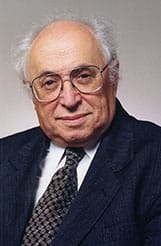How many of my generation heard this advice from their parents, “Make sure you have a profession, that no matter where you go, you can hang a shingle and make a living.”
Grandchildren of the depression, teenagers of 1970s stagflation, we were told to prepare for adulthood by attaching magic letters to our names: DDS, JD, MD, CPA.
So in 1977, I drove down Interstate 95 to major in accounting at Wharton. The relationship between the University of Pennsylvania and the Wharton School was a little vague to me. (During my interview I asked if Wharton fielded its own athletic teams.) But I sought a secure future and having been told that the Big 8 firms (whatever they were) all recruited there and, more importantly, that my cousin Kenny had gone to Wharton and done very well I ventured into West Philadelphia.
To study business.
In addition to accounting, the curriculum included economics, finance, management, marketing and business law. There were the business-related courses in statistics, as well as something called decision sciences. These courses were interesting and useful.
Then there were the requirements in freshman English, calculus and a semester of computer sciences. These courses were interesting and necessary.
And then, there were a bunch of electives. These courses were … magic.
Where do I start?
With sociology professor Digby Baltzell, W’39, and his class Social Stratification, I “met” Alexis de Toqueville and gained an intuitive sense for the foundations of a stable society.
Maybe with Nora Magid, who—in a course on advanced expository writing—taught me to remove adverbs and adjectives, convert the passive to the active voice and reminded me never to forget that you can lose your reader with a single incongruous image. Plus, she arranged for me to spend an office hour with Philip Roth.

Prof. Aron Katsenelinboigen. Photo credit: Wikimedia Commons.
Or with Marc Blitz, who during Ancient and Medieval Political Philosophy said, “Equality is relative. No one likes it when the mayor cuts to the front of the line at the best restaurant in town. But, then again, no one wants to be seated behind a group of bovine philistines at the opera.”
Or with Drew Faust’s course American Civilization: The South, which painted such a vivid picture of Reconstruction that I felt as if I had lived through it.
Just as Aron Katsenelinboigen had done with Soviet Economic History when he was a professor in the Economics Department
Not to mention the biology, physics, and inorganic and organic chemistry professors, who let me cobble together a senior year premed concentration, that landed me not at Price Waterhouse, but at Penn Med, grateful for the fantastic liberal arts education that I had not known was waiting for me.
At Wharton.



























